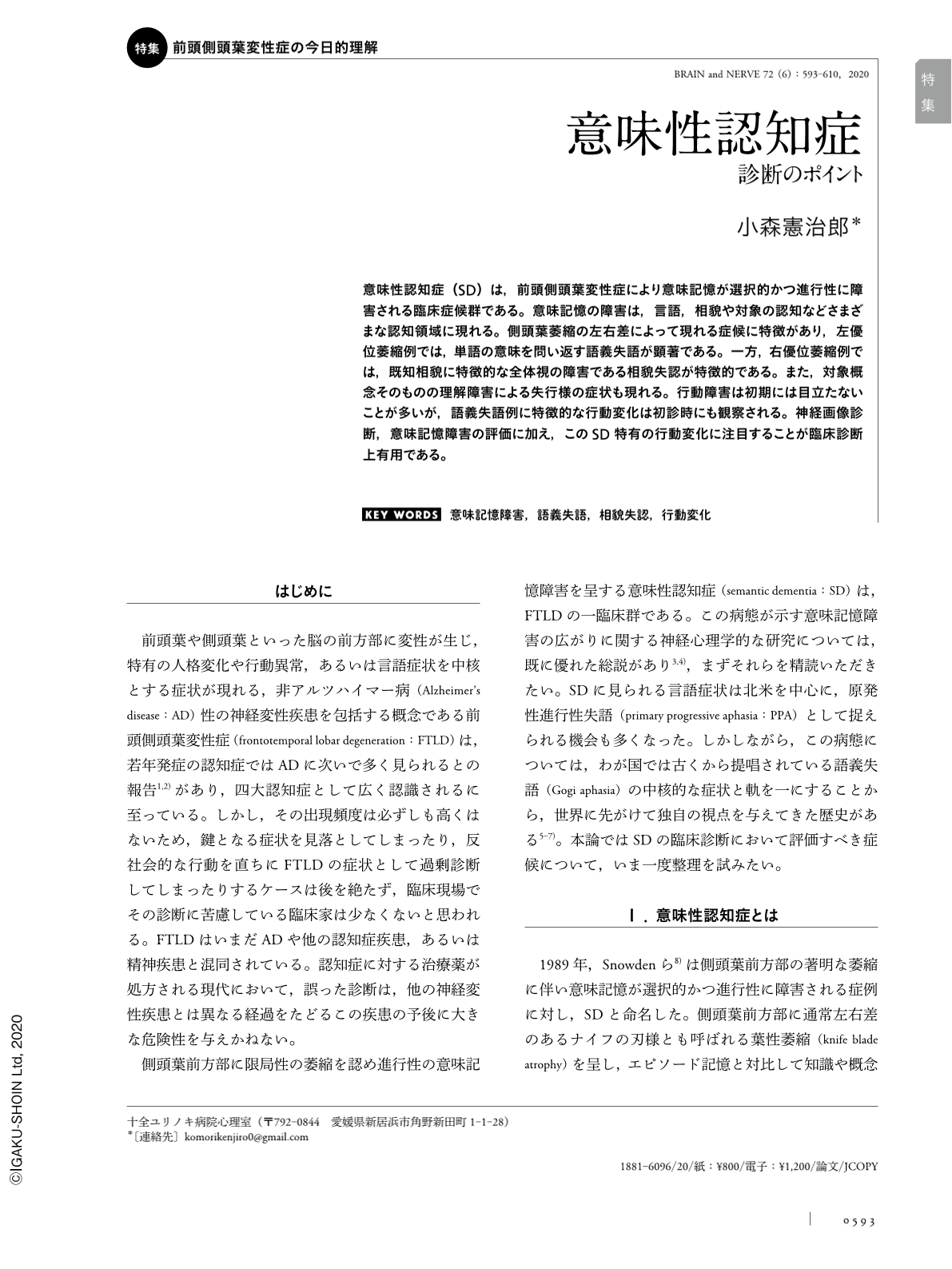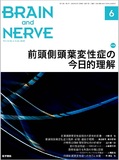Japanese
English
- 有料閲覧
- Abstract 文献概要
- 1ページ目 Look Inside
- 参考文献 Reference
意味性認知症(SD)は,前頭側頭葉変性症により意味記憶が選択的かつ進行性に障害される臨床症候群である。意味記憶の障害は,言語,相貌や対象の認知などさまざまな認知領域に現れる。側頭葉萎縮の左右差によって現れる症候に特徴があり,左優位萎縮例では,単語の意味を問い返す語義失語が顕著である。一方,右優位萎縮例では,既知相貌に特徴的な全体視の障害である相貌失認が特徴的である。また,対象概念そのものの理解障害による失行様の症状も現れる。行動障害は初期には目立たないことが多いが,語義失語例に特徴的な行動変化は初診時にも観察される。神経画像診断,意味記憶障害の評価に加え,このSD特有の行動変化に注目することが臨床診断上有用である。
Abstract
Semantic dementia (SD) is a clinical syndrome characterized by selective and progressive semantic memory impairment due to frontotemporal lobar degeneration (FTLD). Semantic memory disorders appear in every cognitive fields, be it language or recognition of familiar people and objects. Left-right asymmetry produces a distinctive clinical symptom of anterior temporal lobe atrophy. Progressive gogi (word-meaning) aphasia, i.e., word comprehension deficits with severe anomia, is prominent in left-dominant patients, whereas progressive prosopagnosia, i.e., difficulty recognizing familiar faces, is prominent in right-dominant patients. Loss of semantic memory of objects is observed in advanced stages of the disease. Behavioral symptoms are less prominent in the early stages; however, behavioral changes in patients with gogi aphasia are observed even in their initial visits. In addition to neuroimaging and neuropsychological evaluation of semantic memory, it will be useful if clinicians pay attention to behavioral changes of patients with gogi aphasia.

Copyright © 2020, Igaku-Shoin Ltd. All rights reserved.


